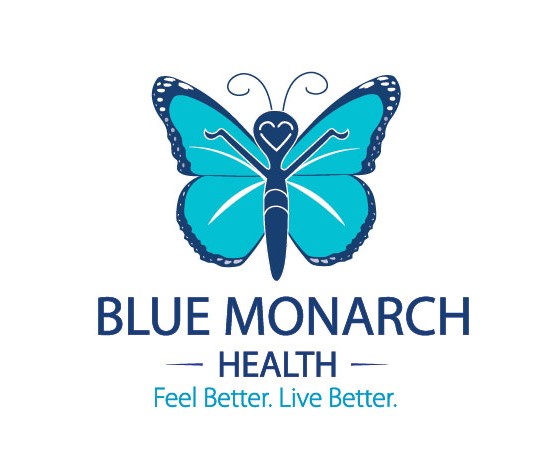When you eat from the rainbow of powerful plant foods, you make a bold choice to build your brain health, and when you take care of your brain, you take care of your whole body! Here, we showcase plants alongside the colors of the rainbow, plus science & tips to make eating plants easier and fun.
How Do Your Feel when You See a Rainbow?
When was the last time you saw a rainbow? How did you feel when you saw it? EEEEEeeeeeeee! Likely you were filled with surprise, excitement and curiosity- likely you said, "I wonder where the pot of gold is?" And if you’ve been fortunate to see a double rainbow?? W-O-W!
Now, think of how you you feel when you see a bowl of crisp, colorful fruits, veggies and other goodies… still the same reaction?? For some of us, YES! For others not so much. lol
But what if you could open up more possibility when eating plants knowing that eating from their rainbow will build your brain and overall health and well being?
For many of us eating fresh plants is hard…, for some it’s not as fun as seeing a rainbow, or eating a bag of brightly colored Skittles, but I know, in your heart, you know that Skittles are not as life giving as a bowl filled with fruits and veggies! Plus, likely your Momma said, “Eat your veggies!”
Power of Phytonutrients and Phytochemicals to Support Overall Vitality
Phytonutrients, also known as phytochemicals are found in plant foods like fruits, vegetables, spices, teas, herbs, whole grains, legumes, seeds, nuts. Plants contain information and when ingested by humans, plants share the information to help human bodies function effectively. The information from a plant’s nutrients tells your body and cells and even your DNA what to do!
For example, phytonutrients stimulate enzymes to get rid of our body's toxins, and they boost your immune cells. Plants regulate your hormones, increase your blood vessels elasticity, decrease inflammation, and protect you from heart disease. They improve your eye health, your skin tone and radiance, and keep your brains sharp.
A plant's information can kill cancer cells, all while making your healthy cells stronger. The fiber within plants feed your good gut bacteria, and improve the way your body eliminates waste. Some phytonutrients keep blood sugars and cholesterol levels in check and visually, their colors and shapes make your plate look interesting and beautiful (click here to read more about Plant Power).
ROYGBIV
Eating vegetables, fruits, nuts, seeds, legumes, spices, herbs, teas, whole grains while imagining ROYGBIV (colors of the rainbow) may help you remember to feel the vitality and excitement of eating powerful plants.
Below, I’ve outlined plant examples for every color of the rainbow, along with one or two tips from science and real life about why they are powerful for your brain health.
And, to keep things simple, consider that all plant-based foods count, so if you’d like to throw a handful of colors into a blender to make a smoothie- go for it. Frozen, fresh or canned? Great! Feel like brewing a cup of herbal tea? Do it. Dried spices or fresh? Eat ‘em up!
Red
Strawberries, cherries, red bell peppers, red apples, red cabbage, tomatoes, rhubarb, radicchio, red beets, pomegranates, cranberries, watermelon, red potatoes, chilies, raspberries, kidney beans and more!
Tomatoes house the carotenoid lycopene which has been shown to reduce cellular inflammation, which is a cause of brain aging and cognitive decline.
TIP: We love making simple homemade tomato sauce for our pasta, and here’s our recipe- it is so easy!
One can of San Marzano tomatoes (any style of tomatoes will do), blend until smooth
3 cloves of garlic chopped
2-3 tablespoons of olive oil
simmer for ~25 minutes (yes, that is all!)
Orange
Carrots, butternut squash, cantaloupe, peaches, sweet potatoes, oranges, persimmons, pumpkin, paprika, legumes.
I bet you already know that oranges are chock full of Vitamin C. Vitamin C helps prevent cognitive decline and neurodegenerative diseases, so eat up!
TIP: Try putting an orange in the freezer for about 10 minutes, then cut it into 4 pieces to serve as a tasty dessert- SO fresh and satisfying.
Yellow
Yellow squash, yellow onion, bananas, lemon, corn, star fruit, Asian pears, pineapple, ginger.
Oxidative stress results when your body can’t neutralize the damaging effects of free radicals, which then causes cellular breakdown and eventual disease over time.
Your brain is susceptible to oxidative stress because it performs super-powerful and high metabolic activity- all-day (and night) long!
Yellow antioxidants in plants combats the ill effects of oxidative stress by reducing the inflammatory process.
TIP: Enjoy a ‘healthier’ version of popcorn than microwave. Invest in an air-popper, pop up about 1/4 cup per person, then add olive oil spray and popcorn salt- easy clean up and a crunchy and quick snack for the family. Serve it up in special bowls-one for each person- to make it more fun!
Green
Green kale, cabbage, spinach, swiss chard, brussel sprouts, arugula, peas, green onions, asparagus, green grapes, green apples, avocado, green tea, kohlrabi, broccoli, collards, green bean, legumes, plus many other greenies fit into this category.
Green, leafy veggies (and other veggies too) are a fabulous source of lutein, and your brain soaks up and thrives with lutein.
Did you know your eyes are an extension of your neuro system- kind of like an out-pouching of your brain? Studies have shown that people with depleted levels of lutein in the macula area of the eye show cognitive decline earlier than those with higher levels of lutein. Your eyes are watching out for you!
Kale, spinach and parsley have the highest amounts of lutein and zeaxanthin (said like zeo-zan-thin) but eating any dark green veggie will support your lutein ingestion. So chomp, chomp!
TIP: I love a good smoothie in the morning or an afternoon snack and here’s a tip to add more powerful greens to your day.
Add two sprigs of kale, one of chard, a handful of arugula or other darker green lettuce, an apple, and a whole lemon (rind peeled). Blend it up with some coconut water and voila! you’ll easily add lutein to your day! Do you feel your brain boosting already??
“I was feeling bad, not just physically, but also mentally. I had no idea food was 99% of my issue. I tried every diet to lose weight, some worked, most didn’t & still felt bloated, with brain fog & fatigue. None of them showed me that the food I was eating was making me sick!
Partnership with Nurse Coach Nicole has made the difference. The education, caring & support I received, along with developing my own self-awareness, has shown me that food is a source of nourishment for my mind & body.
My brain fog, digestion issues, & skin have cleared, & bonus, I’ve lost weight!”
Blue, Indigo, Violet
Blue/Indigo/Violet plums, prunes, grapes, eggplant, purple cabbage, purple asparagus, Spanish onions, purple carrots, black currants, elderberries, blue berries, black berries are some plants that fit into this category.
Blueberries have anthocyanins that when eaten daily showed enhanced neural response in those with mild cognitive impairment, and they may also protect against Parkinson’s disease, plus, they are just so sweet and yummy!
TIP: Try adding berries to soda water…
Toss a handful of strawberries or raspberries or blueberries- whatever you have into the bottom of a glass. Mash them up using a fork or muddler, pour in soda water and ice, mix gently. Serve in a fancy glass to show your class! Pinkies up.
White
White isn’t a color of the rainbow, but we can’t leave out this important color.
White turnip, potatoes, coconut, garlic, cauliflower, mushrooms, white carrots, jicama, parsnips, white pear, shallots, banana, white rice, oatmeal, soy are some examples.
A six year study out of Singapore, China showed that eating mushrooms seemed to have lowered the chances of mild cognitive impairment and improved participant’s brain processing speeds, especially those who ate two or more servings of mushrooms a week.
TIP: Look for veggies (besides potatoes) that are white. I challenge you to explore and add a different white veggie to your plate this weekend!
Brown
Brown is not part of ROYGBIV, but we want to add it as an ‘accessory’ color- kind of like a good pair of shoes.
Walnuts, pecans, almonds, Brazil nuts, dates, mushrooms, potatoes, brown rice, whole wheat bread, rutabaga, quinoa, barley, miso, and legumes.
A 2014 study from the Journal of Nutrition, Health and Aging shows that adults ages 20 to 59 who consistently ate daily servings of walnuts scored significantly higher on cognitive exams than those adults who didn’t eat nuts. Crazy something so simple can have such a positive effect- nuts in fact!
Plus, have you really looked at the shape and contours of a walnut? I KNOW! Walnuts look like little brains- so they must be good for our noggins!
TIP: Add a handful of nuts to oatmeal, a salad, or as a mid afternoon snack- there are so many nuts to choose from, it’s nuts… so explore!
Eating from the rainbow to build brain health final thoughts
Some final thoughts about eating from the rainbow to build brain health. Bottom line. Eat a wide variety of color, shape, texture and flavor to do what's best for your brain and your overall health. All the little things you do, add up to BIG improvements in how your brain reacts and responds.
TIP: When you need some help- I’m here!
NICOLE VIENNEAU, MSN, RN, NC-BC
~Active Aging Specialist, Health Protection Expert & ‘Head’ Motivator!
After two decades as an Intensive Care Nurse caring for the sickest of patients, Nicole left the one-size fits all healthcare industry, and created Blue Monarch Health.
Nicole takes you by the hand and co-creates a plan with you, so you can really do it in your life. Nicole is an authentic, heart-centered stick of dynamite, that will focus your energies, build up your strengths, and leverage your unique gifts, all while enhancing your health and vitality!
Nicole has been a Registered Nurse for 20+ years and achieved a Master’s in Nursing Science from the University of Arizona, a board certification in Integrative Nurse Coaching from the American Holistic Nurses Credentialing Corporation, and is Senior Faculty with the Integrative Nurse Coach Academy. She is a Functional Aging Specialist, yoga teacher, personal trainer, and group fitness instructor and enjoys healing in nature while hiking the Pacific Northwest trails with her husband or lounging in the sun with her cat babies. Email Nicole
The contents of this website/blog are for informational purposes only and are not intended to be a substitute for professional medical advice, diagnosis, or treatment. This website/blog does not provide medical advice, diagnosis, or treatment.
Always seek the advice of your physician or other qualified health provider with any questions you may have regarding a medical condition.













